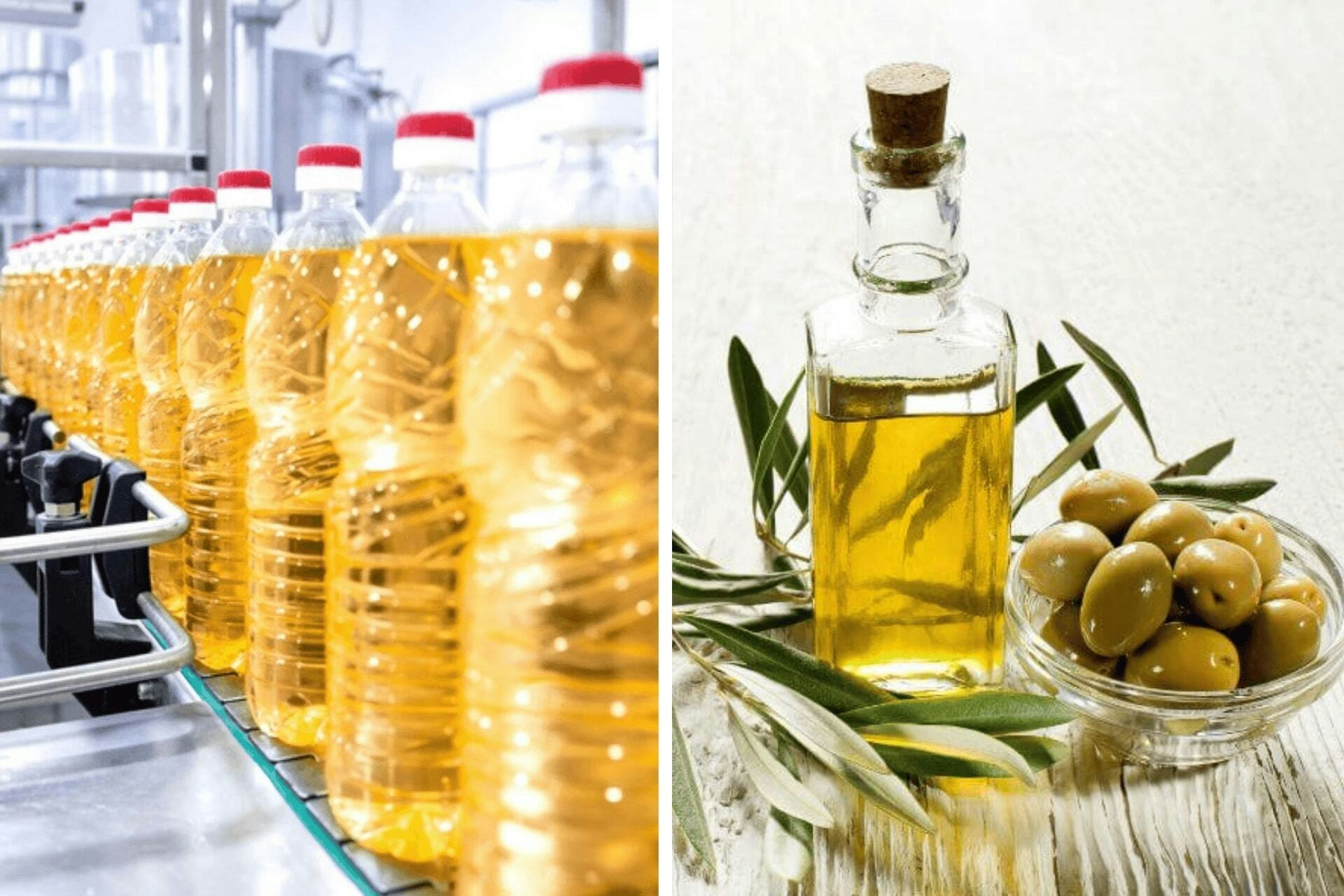Have you ever baked something that didn’t turn out the way you hoped — maybe the texture felt off, or the flavor just wasn’t quite right? It might surprise you, but the type of oil you use can make a big difference. While it may seem like a small ingredient, oil affects everything from moisture and crumb to taste and even how your baked goods rise.
Choosing the right oil can elevate your cookies, cakes, or muffins from “okay” to “irresistible.” In this guide, we’ll share the best oils to bake with, including healthy and versatile options, plus which oils you’re better off avoiding.
Why Choosing the Right Oil for Baking Matters
Oil plays a key role in shaping the flavor of your baked goods. Some oils, like coconut or olive oil, have a distinct taste that can come through in the final product — great if you're going for a specific flavor profile, but not ideal if you want something more neutral. For example, coconut oil can lend a subtle tropical note to cookies or cakes, while extra virgin olive oil might add a peppery, earthy tone that works well in savory breads.
The oil you choose also affects the texture and moisture of your baked goods. Oils with a high fat content help create a tender crumb and keep cakes and muffins soft and moist. Lighter oils tend to yield a more delicate, fluffy texture, while thicker oils like coconut oil (especially in solid form) can create a denser consistency.
Finally, every oil has a smoke point — the temperature at which it begins to break down and produce smoke. Using an oil with a low smoke point in a hot oven can not only affect the flavor but also create unwanted compounds or a burnt taste ❶.
5 Best Oils for Baking
Now that you know why oil choice matters in baking, let’s explore the best oils that perform well in everything from cookies and cakes to breads and muffins.
Each oil on this list offers a unique combination of flavor, texture, and heat stability, so you can choose the best match for your recipe and dietary needs.
1. Algae Cooking Oil
Algae cooking oil is a newcomer to the baking world, but it’s quickly gaining popularity, thanks to its clean, neutral flavor that won’t interfere with your recipe, and its incredibly high smoke point (up to 535°F). It’s also rich in monounsaturated fats and low in saturated fat, which supports heart health.
Best for: High-temperature baking, recipes that require a neutral-tasting oil, and health-conscious bakers looking for a sustainable option.
Note: Algae cooking oil is still relatively new and might not be available at every grocery store yet. However, it’s worth seeking out for its nutritional profile and performance.
Related: Algae Oil Benefits
2. Avocado Oil
Avocado oil is another excellent option for baking, especially if you’re looking for something both healthy and versatile. It has a mild, buttery flavor that complements most baked goods. With a high smoke point of about 520°F and a rich content of heart-healthy monounsaturated fats and vitamin E, avocado oil holds up well under heat while adding a nutritional boost.
Best for: Moist and tender baked goods like brownies, quick breads, and muffins. It also works well in dairy-free and paleo-friendly recipes.
Note: Avocado oil can sometimes lend a slight greenish tint to light-colored batters. While this usually isn’t noticeable after baking, it’s something to consider when making delicately flavored cakes or sugar cookies ❷.
Related: Avocado Oil Substitutes
3. Light Olive Oil
Light olive oil is a refined version of traditional olive oil that’s ideal for baking. Unlike extra virgin olive oil, which has a strong flavor and lower smoke point, light olive oil is much more neutral and can handle temperatures up to about 465°F. It retains some of the health benefits of olive oil, like antioxidants and healthy fats, without adding an herbal or peppery taste to your sweets.
Best for: Cakes, breads, and savory baked goods like cornbread or herb muffins, where a subtle richness is welcome but a strong olive flavor is not.
Note: “Light” refers to the flavor and color, not the calorie content. Make sure to choose this refined version rather than extra virgin if you want a clean-tasting oil.
Related: Olive Oil Substitutes
4. Canola Oil
Canola oil has long been a go-to baking oil due to its affordability, neutral flavor, and light texture. It works in almost any recipe without altering the taste and has a smoke point of 428-446°F, which is adequate for most baking needs. It’s also lower in saturated fat and contains a good balance of omega-3 and omega-6 fatty acids.
Best for: Everyday baking tasks like making cookies, cakes, and muffins, particularly when you want the spotlight on flavors like chocolate, spices, or fruit.
Note: While canola oil is convenient and consistent, it’s often highly processed. If you prefer minimally refined ingredients, you may want to opt for avocado or algae cooking oil instead.
Related: Canola Oil Substitutes
5. Coconut Oil
Coconut oil is a popular choice in many vegan and dairy-free recipes because of its ability to mimic the texture of butter. It can be used in either solid or melted form, depending on the recipe, and it adds a subtle coconut flavor.
With a smoke point of around 350°F, it's best suited for lower-temperature baking or recipes that don’t require extended time in a hot oven. Coconut oil is naturally high in saturated fat, which gives baked goods a rich, tender texture but may be a concern for those watching their heart health.
Best for: Vegan and paleo baking, as well as no-bake desserts, energy bites, and treats where you want a hint of coconut flavor.
Note: Virgin coconut oil has a stronger coconut aroma and taste, while refined coconut oil is more neutral.
Related: Coconut Oil Substitutes
Oils to Avoid in Baking
One category to be cautious of is oils with strong, overpowering flavors. For example, extra virgin olive oil, walnut oil, or sesame oil can lend bold, sometimes bitter or nutty notes that may clash with sweet ingredients.
Another type to limit is oils that are high in saturated fat, especially those that are heavily processed or hydrogenated. While some saturated fats, like those found in coconut oil, can work well in baking, others — such as palm oil or shortening — offer little nutritional value and may contribute to poor heart health when consumed frequently.
Lastly, avoid oils with a low smoke point when baking at moderate to high temperatures. Oils like flaxseed or unrefined sunflower oil break down quickly under heat, which can lead to off-flavors, smoke, and the release of unhealthy compounds. These oils are more appropriate for drizzling, dressings, or low-heat cooking.
The Bottom Line
The oil you choose for baking can do more than just hold your ingredients together — it can transform the flavor, texture, and overall quality of your baked goods. Knowing how each oil behaves in the oven helps you make choices that bring out the best in your baking.
If you’re looking to try something new, consider giving algae cooking oil a spot in your pantry. It’s an innovative, sustainable ingredient that’s great for health-conscious bakers.
FAQs About Oils for Baking
What is the healthiest oil to bake with?
Algae cooking oil is one of the healthiest options available. It’s rich in monounsaturated fats, low in saturated fat, and has a very high smoke point, so it’s stable under heat. Avocado oil is another option, thanks to its heart-healthy fats and vitamin E content.
What’s the best oil for baking cake?
Light olive oil or canola oil is excellent for cakes due to their neutral flavor and ability to create a light, moist texture. If you want to boost nutrition without changing the flavor profile, avocado or algae cooking oil are also solid picks.
What’s the best oil for vegan or dairy-free baking?
Coconut oil is a popular choice because it behaves similarly to butter and adds richness to recipes. Avocado oil also works well, especially if you want a more neutral flavor and are baking at higher temperatures.
Can I use extra virgin olive oil for baking?
You can, but it depends on the recipe. Extra virgin olive oil has a bold flavor and a lower smoke point, so it’s best used in savory baked goods like breads or muffins with herbs and citrus.




